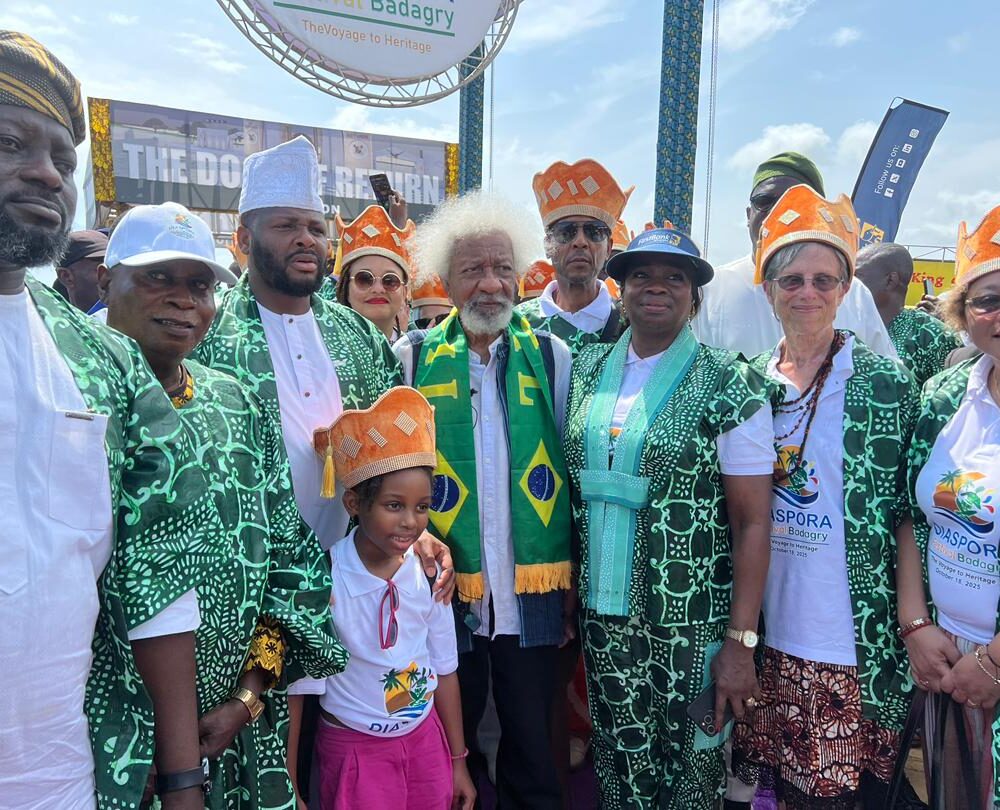It is interesting that even now people of Ile-Ife still refers to Baba Adesoji Tadeniawo Aderemi in the present tense. It is as if one day, he would be sighted at Oke Itase or any of the many sacred sites in Ile-Ife, the city which the Yoruba people believe is the Land of the First Dawn. Aderemi was the Ooni of Ife for 50 momentous years. Forty years ago when Chief Bola Ige was the Governor of old Oyo State, the Ooni passed on to the land of the ancestors. To the Ife people however, Aderemi remains a living ancestor whose deeds and footprints are alive and dynamic.

It is good that his people, led by His Imperial Majesty, Oba Adeyeye Enitan Ogunwusi, are marking the 40th anniversary of his passing. Aderemi was the first African Governor of the old (and whole) Western Region, when the region was made up of the present Delta, Edo, Ekiti, Lagos, Ogun, Osun, Oyo and Ondo states. He was to be the last Governor of the whole because by the time Sir Odeleye Fadahunsi became Governor in 1963, Mid-West Region (now Edo and Delta) had been created; the only state to be created by constitutional means since the British departed in 1960.
Aderemi did many great things for the people of Nigeria and especially for his ancient kingdom in Ile-Ife. This April, we would have marked the 50th anniversary of Ife Anglican Grammar School, Ile-Ife, one of the community schools that Aderemi led his people to establish. It was the unexpected arrival of the COVID-19 pandemic that scuttled our plans. He was the founder of our school and we were looking for an opportunity to celebrate him.
When Chief Obafemi Awolowo was looking for ways to launch his political career, he went to Ile-Ife, the land of all beginnings. Awolowo and his men had met in Owo where they were hosted by the dashing young Olowo, the inimitable Oba Olateru Olagbegi and his ascetic cousin, the young teacher, Chief Michael Adekunle Ajasin. It was after that they came to Ife when the Ooni and the wise ones of Ife led them to light the sacred lamp with sixteen eyes.
The lamp that was lighted on that day illuminated the entire Yorubaland and beyond. Awolowo carried the torch to show the way to his people. It was a difficult task. When he became Leader of Government Business in 1952, he and his men and women decided to embark on bold social engineering that was to transform the West. But it was a difficult journey for there were no guiding map and no precedence to follow. Awolowo’s boldest move was the decision to implement free and compulsory free primary education. But it was at best a controversial programme and the opposition National Council of Nigeria and the Cameroon, NCNC, led by the charismatic Dr Nnamdi Azikiwe, were up in arms against it. During the regional election of 1954, the NCNC defeated Awolowo’s Action Group, AG.
It was a rebuff Awolowo took keenly to heart. He packed his files from Ibadan and headed for his country home in Ikenne.
He had decided to resign. Aderemi got winds of it and paid Awolowo a visit. Accompanied by some other obas, the Ooni arrived Ikenne early the following morning and told Awolowo pointedly that he cannot go.
“This is your destiny,” Aderemi told him. “You cannot run away from it.”
In January 1955, Awolowo launched the Free Primary Education Programme that was to change the destinies of millions and improve the lives of generations. The Awolowo era was to have profound effect on the long reign of Aderemi. It was the era that brought the University of Ife, now Obafemi Awolowo University, to the city. It was not surprising that the Ooni was made the first African Governor of the defunct Western Region. He also served as a Federal Minister from 1952 to 1953 when all ministers nominated by the AG resigned from the federal cabinet following the brouhaha in the wake of Chief Anthony Enahoro’s motion for Self-Government.
His tenure as Governor was to end even more dramatically. Awolowo was succeeded as Premier by his party deputy, Chief Ladoke Akintola, in 1959. He was now the Leader of Opposition in the Federal Parliament in Lagos. The AG was soon lacerated by internal crisis. When a majority of Assembly members signed a petition removing the Premier, Aderemi fired him and swore-in Alhaji Dauda Adegbenro as the new Premier. But Adegbenro’s premiership was a pipedream as Akintola’s supporters disrupted a seating of the Assembly to endorse his premiership.
The Federal Government of Prime-Minister Abubakar Tafawa-Balewa, hungry for a way to humble the West, teamed up with Akintola and declared a State of Emergency in the West. The AG went to court and when it appeared its petition might succeed at the Privy Council in London, Balewa and his allies in the NCNC, passed a constitutional amendment that Nigeria was now a republic. Akintola returned to the premiership with disastrous consequence. The Ooni returned to his palace in Ile-Ife.
Aderemi was born in 1889 at the tail end of the bloody Yoruba civil wars. As a young prince, he knew many of the veterans of those conflicts. Peace, imposed by a foreign power, Great Britain, offered new opportunities and he soon seized them. He became wealthy at an early age and was nicknamed Atobatele (the one who was already equal to a king before ascending the throne). He became the Ooni in 1930 when he was just 40. It was the same year that his illustrious, Oba Okunade Sijuwade, was born.
Aderemi ascended the throne at a time of phenomenal changes. None of his predecessor was permitted to leave Ife except after elaborate rituals. No ordinary mortal must see the face of the Ooni. But by the time he ascended the throne, Aderemi already had a motor car, one of the few in Ile-Ife. He decided to break with tradition and sent a message to some of the leading obas, including the Alaafin of Oyo and the Oba of Benin that the obas too must meet. He reasoned that it was the immobility of the royal class that led to the rise of the Yoruba military class in the 18th and the 19th centuries with disastrous consequences.
The obas met in Oyo in an historic conclave in 1935. The meeting was to open up new boulevard for the royal class. Things were never to be the same again. For Ooni Aderemi, it was his first direct involvement in pan-Yoruba politics.
Politics was to bring him new challenges and dynamics. The British colonial authorities, aware of his immense influence as the living representative of Oduduwa, the progenitor of the Yoruba people, courted him. He was knighted twice. When Elizabeth II was crowned the Queen in 1953, Aderemi led the Nigerian delegation to London to witness the coronation. He was a vigorous man who participated in many of the constitutional processes that led to Nigeria’s independence.
By the time I got to Ife in 1969, he was an old man passed his prime. Rumour were abroad that the old man was near the end of his journey and he would not be able to participate in the yearly Olojo Festival, the festival to mark the dawn of creation. But on the appointed date, the Ooni emerged from his palace, wearing the sacred Aare crown as he led the devotees to Oke-Mogun.
Few weeks ago, I had met our Baba, Oba Adeyeye Enitan Ogunwusi, the current Ooni who succeeded Oba Sijuwade five years ago. We were to interview him for our forthcoming monthly magazine.
The Ooni has totally transformed the palace that we use to know as children for many of the structures on the palace ground were built during the long Aderemi era. Now the Ife palace is awash in modernity and the enthralling allure of majesty. Just like Baba Sijuwade, Ooni Ogunwusi regards Ooni Aderemi as his measuring-rod.
For the Ife people, Aderemi is a living ancestor whose spirit is still abroad to guide his people to the future.
THE GUARDIAN
09 July 2020






